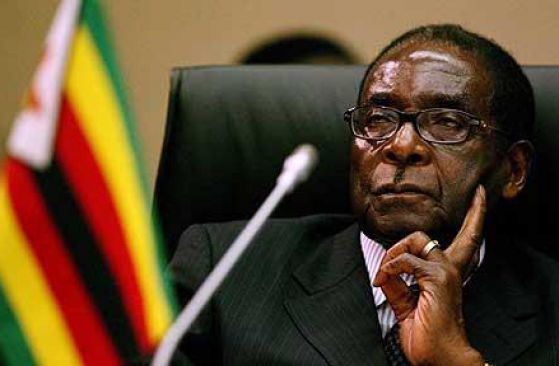Reuters photo
By
Joe Khamisi
If there is one African leader who has persistently been vilified, decisively eviscerated by opponents, gleefully caricatured by cartoonists and habitually “killed” by social media psychopaths, that leader is Robert Gilbert Mugabe.
There are reasons why the man called “Uncle Bob” appears to be a magnet of interest. But first an African proverb.
A tree full of fruits entices the highest number of strikes from passers-by.
Uncle Bob is that tree.
After he took over as Prime Minister in 1980 and then President of Zimbabwe in 1987, the southern African country became a prosperous nation. He implemented a development plan and carried out sound policies that allowed agriculture, manufacturing, and mining to grow. He built health centers and schools in the rural areas and the country folk were happy. The economy was rolling at around 6 percent, one of the strongest in Africa.
Then in 2000, he nationalized big farms – 70 percent of the most arable land – owned by white people and distributed them to black Zimbabweans, or more precisely, former colleagues in the liberation army.
That is when hell broke loose.
As whites protested – and some left – accusing the President of racism, a rage-filled Mugabe tightened his hold on the country. The result is that the economy slumped, and last year it crashed to around 1.5 percent growth rate. Almost all the key sectors have collapsed following nationalization. The government can no longer pay salaries to civil servants; unemployment is unprecedentedly high; and the opposition is disabled.
This week the government suspended surgeries in public hospitals due lack of drugs, and people are on the streets protesting poor services and non-payment of salaries.
Until 2009 when the Zimbabwe dollar was suspended, the largest note had a face value of 100 trillion. Theoretically, every Zimbabwean was either a millionaire, a billionaire or a trillionaire. Cash was carried in sacks and wheel-barrows.
Today, Zimbabwe is the only African country using seven different currencies in its monetary portfolio – the South African Rand, the US Dollar, the Chinese Yuan, the Japanese Yen, the Australian Dollar, the British Pound, and the Euro.
Meanwhile, the African upper-crust of society – the gilded elite – who grabbed the white farms and left them to waste because of a lack of farming and managerial skills, are unsurprisingly inviting back whites to return; surprisingly some of them are doing so.
Many feel the solution to Zimbabwe’s current fiscal and political problems is for the pugnacious Mugabe to go. Mugabe refuses, saying his departure must be hinged on a democratic process. Unfortunately, democracy has entirely evaporated.
The problem for the opposition is that Uncle Bob and his ruling ZANU-PF keep on “winning” elections term after term. As a result, the opposition is broken, fatigued, and incapable under the current circumstances to do anything. To make it worse, the army is weak and corrupt.
The result? Zimbabwe is bleeding.
But the 92-year old former freedom fighter in failing health keeps on trudging on.
He spends millions of dollars on his and his wife’s birthdays; travels the world like a spoilt despot; cares less whether peasants eat or not, or diplomats abroad are paid their dues. Whatever belongs to Zimbabwe belongs to him, his wife Grace, and his family.
His reputation as a feisty speaker against colonialism and imperialism is well-known, but the former school teacher has certainly reached his sale-by date, and should give way to a younger leader who can rekindle the old Zimbabwean charm.
To those who wish him dead, Mugabe sarcastically tells them: “I have died many times. I have actually beaten Jesus Christ because he only died once.”
To Uncle Bob I say this: Africa still needs you, but it needs you far away from power.
Joe Khamisi
Joe Khamisi is a former journalist, diplomat and Member of Parliament. He is also the Author of ‘Politics of Betrayal:Diary of a Kenyan Legislator‘, a political memoir about the situation in Kenya between 2001, when the ruling party of President Daniel Arap Moi, the Kenya African National Union (KANU), merged with Raila Odinga’s National Development Party.
The book also narrates cases of corruption in Parliament and in the Media and records Senator Obama’s visit to Kenya in 2006. As a friend of Barack Obama Senior, the author also remembers the times and tragedies of the American-educated economist.
Joe Khamisi’s second book, a biography, ‘Dash Before Dusk’ is also now on sale.
Joe’s latest book is ‘The Wretched Africans: A Study of Rabai and Freretown Slave Settlements‘ which has recently been published and is now available to purchase.






No Comments Yet!
You can be first to comment this post!